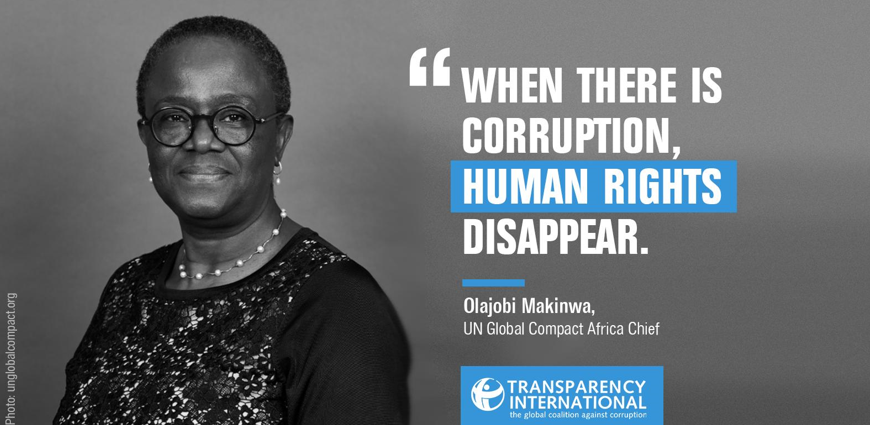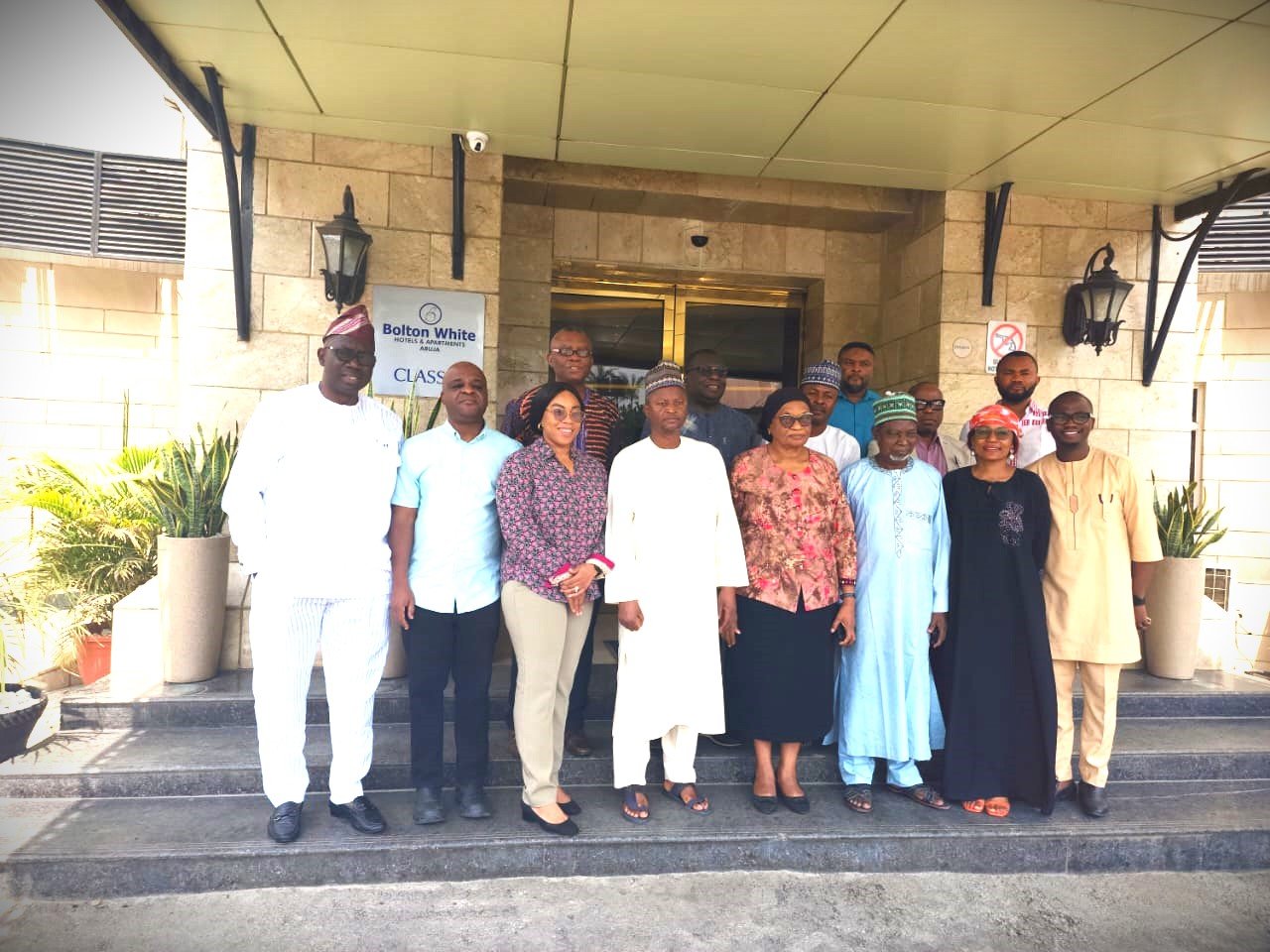
Nigeria’s health sector is on the path of restoring confidence of citizens in its health system. Under the present health leadership, the Health Sector Renewal Compact (HSRC) recognises the importance of accountability as the glue that should firmly hold and drive its social compact with Nigerian citizens. To achieve this, the current leadership must pay attention to cutting-edge evidence that identifies accountability gaps in the health system, their effects on health service delivery and uptake, and how they can be addressed.
Stakeholders have been requested to support the current Nigerian health leadership’s vision of entrenching an accountable and transparent health system. In response to this call, a coalition of health anti-corruption scholars, policymakers, civil society, and health and media practitioners has been established. This coalition known as the Health Anticorruption Project Advisory Committee (HAPAC) is driven by over seven years of research on accountability and corruption in the health sector across sub-Saharan Africa. HAPAC will deploy evidence-based information to support Nigeria’s health leadership towards achieving an accountable health system.
On February 28 and 29, 2024 in Abuja, the coalition met to reflect on the findings from an ongoing study over the past 7 years on health corruption and accountability in Nigeria. The study was presented by the Health Policy Research Group, University of Nigeria (HPRG), and the broader Accountability in Action (AiA) Research Team drawn from prominent scholars within and outside Nigeria. As validated by HAPAC the seven crucial highlights from this study can be seen in the below infographic.
Therefore, HAPAC calls on the leadership of the health system to take concerns about the seriousness of the issues raised and mainstream them into the sector’s accountability agenda. HAPAC has shown commitment by using evidence to point to what the fundamental problems are, firmly encouraging that these fundamental issues must be addressed squarely. Otherwise, any accountability structure leaving them out will be nothing but cosmetic.
Accountability priorities for HAPAC as regards the health sector emphasise three areas which are:
1. Basic Health Care Provision Fund
2. Human Resource for Health
3. Coordination of donors and donors’ resources.
These three areas are critical for strengthening the Nigerian health system and ensuring value for every investment in it.
HAPAC will engage more with the government, leveraging evidence and experience to help achieve an accountable health sector that is transparent, people-centred, and corruption-free.
The three HAPAC accountability priorities will be pivotal to these engagements. To intensify HAPAC’s chase of these priorities, the coalition will expand its network to include membership from the WHO, Finance Ministry, Public Complaints Commission, Consumer Protection Commission, Gates Foundation, Foreign Commonwealth and Development Office, and frontline anticorruption civil societies.
In all, HAPAC uses this opportunity to commend the current health sector leadership for rolling out the much-needed Health Sector Renewal Compact (HSRC), seeking consensus with Nigerian citizens in improving health indices on the road to Universal Health Coverage. Nevertheless, taking out the cogs embodied by corruption and weak accountability remains the most viable path to the fulfilment of HSRC for the Nigerian people.
For correspondence: obinna.onwujekwe@unn.edu.ng and prince.agwu@unn.edu.ng
Download full pdf version of communique
As published by the Guardian
Acknowledgment
-
-
Health Policy Research Group, University of Nigeria (HPRG)
-
Bayero University, Kano, Nigeria (BUK)
-
Nigerian Academy of Science (NAS)
-
Health Reform Foundation of Nigeria (HERFON)
-
International Centre for Investigative Reporting (ICIR)
-
Results for Development Institute (R4D), Nigeria
-
BUDGIT
-
Voice Against Corruption in Nigeria
-
Voice of Nigeria (VoN)
-
London School of Hygiene and Tropical Medicine (LSHTM)
-
Health Systems Research Initiative (HSRI)
-
Foreign, Commonwealth, and Development Office (FCDO)
-
Anticorruption Evidence Consortium – School of Oriental and African Studies (SOAS-ACE)
-
United Nations Office on Drugs and Crime (UNODC)
 L-R front row: Dr John Onyeokoro (Health Watch Resources Ltd); Prof Muktar Gadanya (BUK); Prof Chinyere Mbachu (HPRG); Prof Isa Abubakar (BUK); Prof Ekanem Braide (NAS); Dr Idris Muhammad (Health Reform Foundation and Chair, HAPAC); Victoria Bamas (ICIR); Iyanuoluwa Bolarinwa (BUDGIT)
L-R front row: Dr John Onyeokoro (Health Watch Resources Ltd); Prof Muktar Gadanya (BUK); Prof Chinyere Mbachu (HPRG); Prof Isa Abubakar (BUK); Prof Ekanem Braide (NAS); Dr Idris Muhammad (Health Reform Foundation and Chair, HAPAC); Victoria Bamas (ICIR); Iyanuoluwa Bolarinwa (BUDGIT)
L-R back row: Dr Tarry Asoka (Independent Consultant); Prof Obinna Onwujekwe (HPRG and Convener, HAPAC); Isiyaku Ahmed (Voice and Accountability Platform); Dr Divine Obodoechi (HPRG); Dr Femi Ajayi (UNODC); Dr Aloysius Odii (HPRG)
HAPAC Members not in picture: Dr Felix Obi (R4D); Runcie Chidebe (Project Pink-Blue); Dr Charles Orjiakor (HPRG); Dr Prince Agwu (HPRG); Dr Eleanor Hutchinson (LSHTM); Prof Dina Balabanova (LSHTM)
This work was supported by a research grant from the Health Systems Research Initiative with funding from the UK the Foreign, Commonwealth & Development Office (FCDO), the Medical Research Council (MRC) and Wellcome, with support from the UK Economic and Social Research Council, (grant no. MR/T023589/1)
The Health Policy Research Group (HPRG) with its base at the College of Medicine, University of Nigeria, Enugu Campus (UNEC) was established in 2002.
It is covered by the legal incorporation of the College of Medicine of the University of Nigeria, Enugu-campus.
Contact Us
- tel: +2348037007771; +2348033130050; +2348032442695; +2349095201921; +2347034437569
- E-mail : hprg@unn.edu.ng; hprgnig18@gmail.com; info@hprgunn.com; obinna.onwujekwe@unn.edu.ng
- Address : Old UNTH, Enugu, Nigeria
Sign up for Hprg UNN newsletter and be informed about our latest updates
We have latest Resources, Publications, Journals and news Blog for you. Let’s know if you wish to have a look
© 2025 ALL RIGHTS RESERVED | HEALTH POLICY RESEARCH GROUP UNN

